
As a team lead, you’ll likely never have a dull moment. Expect meetings that need attending, software that needs building, and code that needs reviewing.
There are always going to be tasks waiting for you.
However, there are only so many hours in the day, and there’s not much chance of you completing these tasks all by yourself. There’s only one solution: task delegation.
By delegating tasks, you free up some time to focus on tasks only you can accomplish and provide your developers with a learning opportunity.
This article will help you learn how to delegate well and boost the effectiveness of your organization.
Table of Contents
Know what to delegate
There are some tasks that you’ll have a hard time delegating. Think about it—can you imagine anyone except yourself hosting one-on-one meetings?
What about tasks containing confidential information? No one else but you is qualified to complete these assignments.
Keeping this in mind, the first step to effective delegation is pinpointing what tasks you can delegate.
Take a look at the visual below—it gives a good overview of tasks that would benefit from delegation:
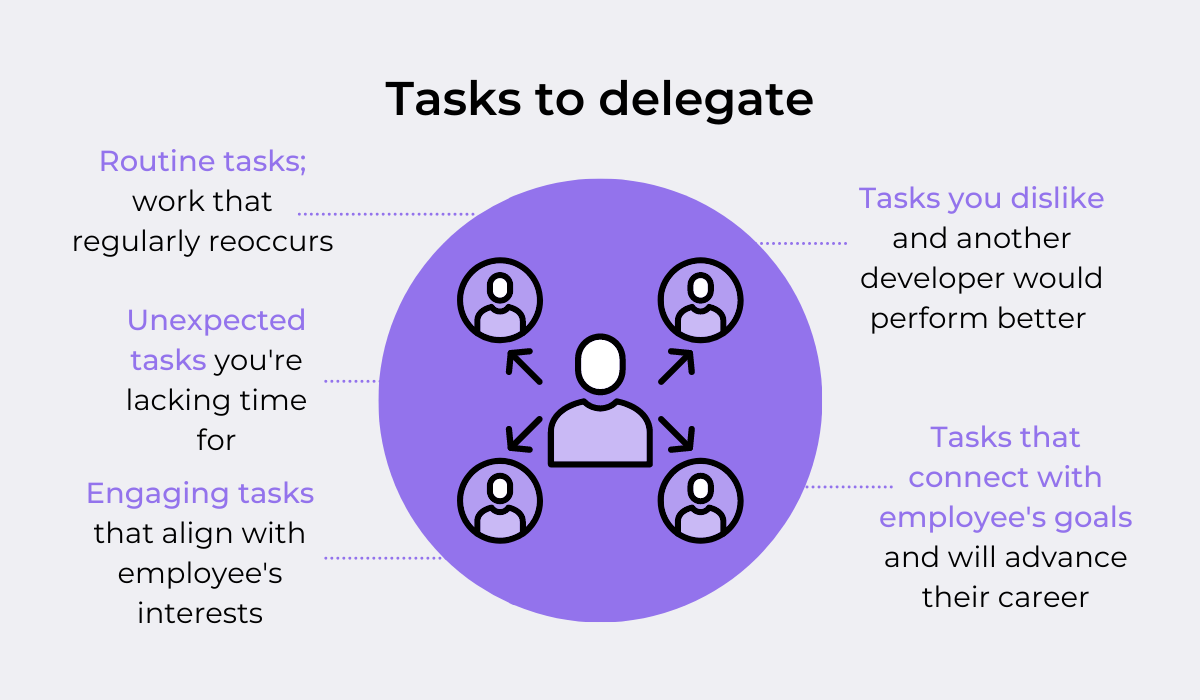
All of the above are good opportunities for task delegation.
For example, let’s say your team is required to run daily or weekly tests. You’ll do well to delegate this task, as it’s a frequent obligation that will consume a fair chunk of your time.

Bug & crash reporting tool for mobile apps.
However, it’s still dynamic work where the results can vary each time, making it a great learning experience for developers looking to move into QA testing.
In other words, it’s sure to advance their career.
However, ensure you start by handing out small tasks. Thomas Griffin, the co-founder of OptinMonster, has advised against delegating too much too soon:
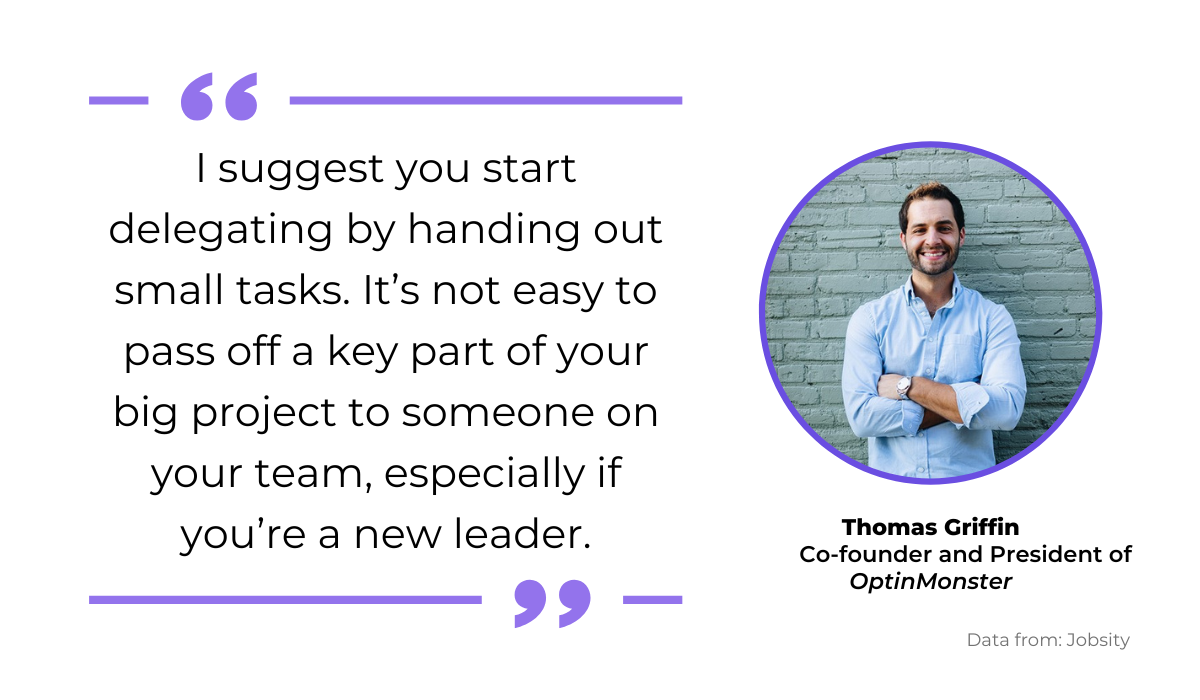
If you hand off an entire project to your developer, they might feel overwhelmed by the new information and responsibility.
A better approach would be to build your team member’s skill set and confidence by incrementally delegating small tasks.
With the completion of each minor assignment, their knowledge will grow, and slowly but surely, they’ll advance to a level where they can head projects on their own.
This is why it’s essential to pinpoint which tasks can be delegated, as you don’t want your employees to bite off more than they can chew.
Delegate to the right people
Now that you’ve identified which tasks are suitable for delegation, your next challenge is identifying who to assign them to.
Each developer has their own strengths and weaknesses, and if one person does something well doesn’t mean they all do.
If you have a back-end developer specializing in Java and PHP, that employee is hardly the best pick for finalizing the application’s front-end look with the designers.
So, who is the best choice? An excellent place to start is to ask yourself the following:
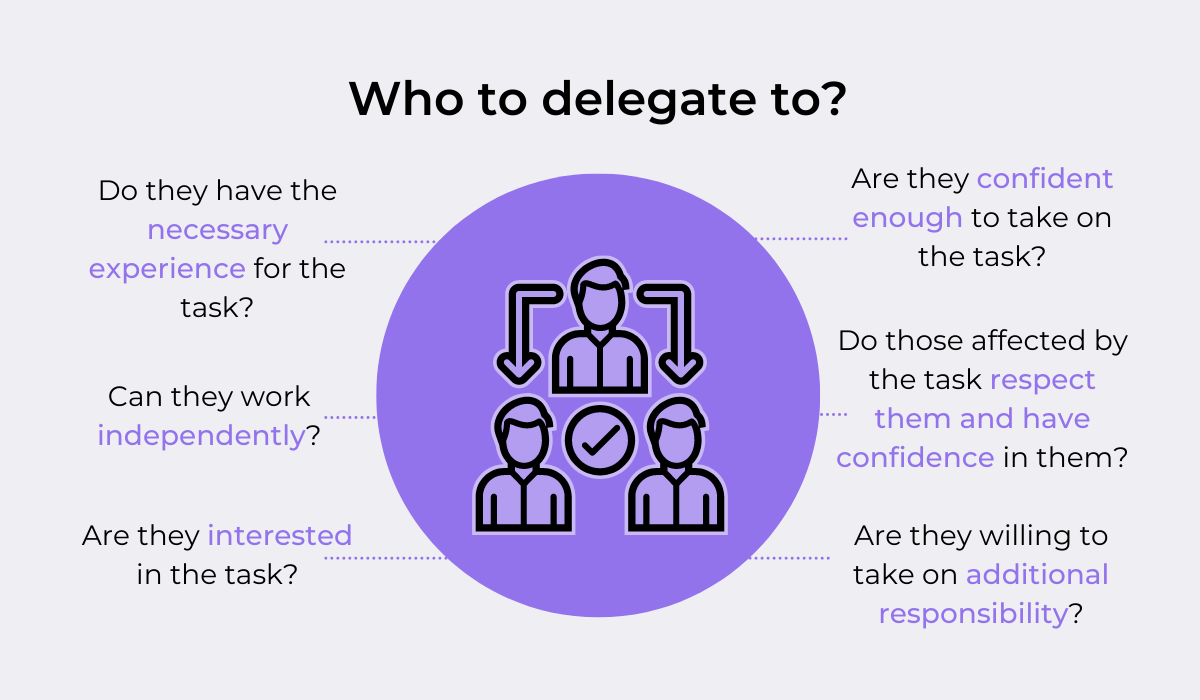
Consider these questions when delegating, and you can evaluate if that team member is the right pick.
It’s essential to consider not only their technical knowledge but also their willingness to take on work. Is your developer happy with their current tasks, or do they feel stunted?
Do they have the time for new responsibilities, or are they barely keeping their head above water? You should also address these circumstantial questions.
Furthermore, specific tasks require collaboration with other departments or stakeholders. For these tasks, ascertain whether your designee has good communication and interpersonal skills.
Rosemary Haefner, an HR expert, also mentioned this:
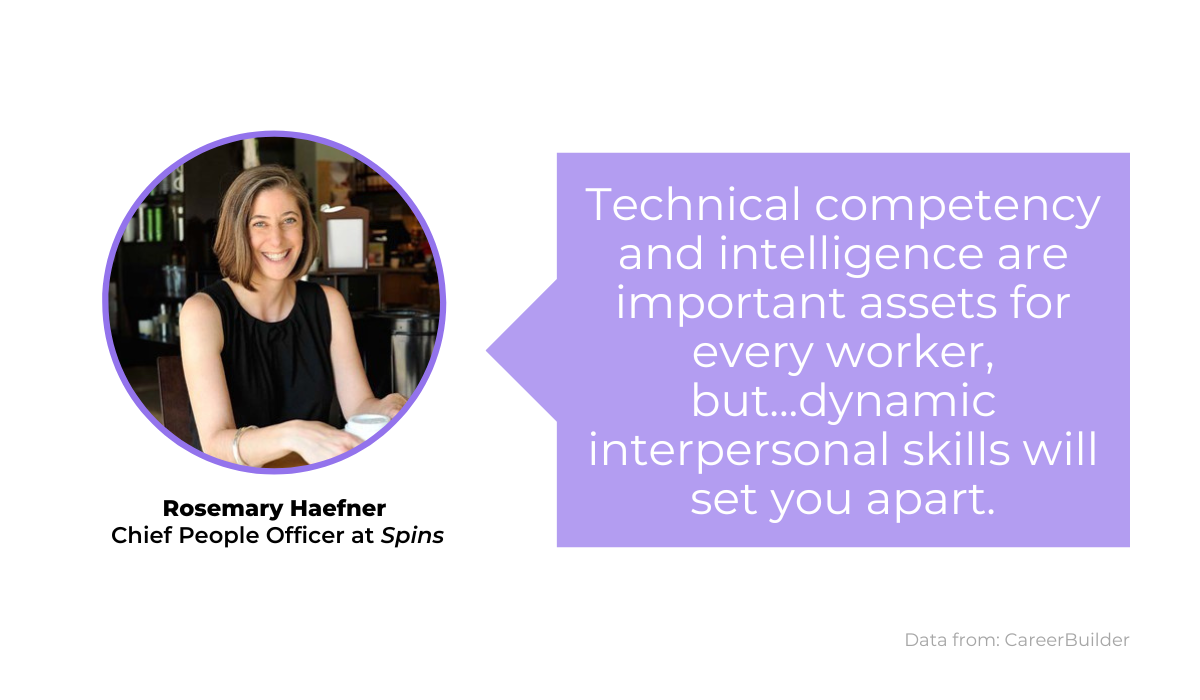
For instance, a developer with solid people skills would serve well as a meeting facilitator or as a point of contact with stakeholders or non-technical colleagues.
Coding is solitary, immersive work, and not every developer will enjoy the job’s collaborative aspects.
Therefore, if you have an employee with strong emotional intelligence, they’re certainly the best pick for the more socially-oriented tasks.
A more introverted developer probably wouldn’t do as well, which is why it’s important to be aware of your team members’ strengths and weaknesses when considering the right person for each task.
Consider developers’ career goals
When delegating tasks to your developers, it’s also essential to consider their career goals.
If you know their professional aspirations, you can give them tasks that will improve their desired skill set.
For example, if you have a JavaScript wizard aiming to be a front-end specialist, you could make them the first point of contact for the designers, seeing as the two professions frequently collaborate.
In any case, it’s important to look at the tasks from the perspective of your team members, not your own.
Although something might seem mundane to you, your less-experienced employees likely won’t see it that way.
Patrick Rogers, an SQL team manager at Flatfy, explained it well:

Your experience with a task will be entirely different from that of your team members, which is why putting yourself in your employees’ shoes is crucial.
However, sometimes your developers might not have defined career goals.
In those situations, assign them the tasks you believe they’d perform well—they might shape their own professional ambitions that way.
In fact, a LinkedIn study revealed the following:

As long as you delegate educational tasks, your developers can realize their career aspirations through these tasks.
Let’s say you have a skilled Python developer, but they usually operate with Flask and CherryPy. Why not task them with setting up a database with Django?
The assignment will go one of two ways: either they’ll love the project and will aspire for Django and Data Scientist positions, or they won’t care for it and realize web development is more down their alley.
Whatever the outcome, you’ve helped your employee towards their professional development.
Define developers’ authority
Task delegation is more than simply outlining tasks—you also need to define your developers’ authority within the process.
For example, if you’ve assigned your developer to write API documentation, can they simply upload these texts once they’re done?
Or do the documents need your stamp of approval? What about if you’re unavailable?
These are all questions you have to answer, as developers need to know their level of autonomy.
There are three main models of task authority, displayed below:
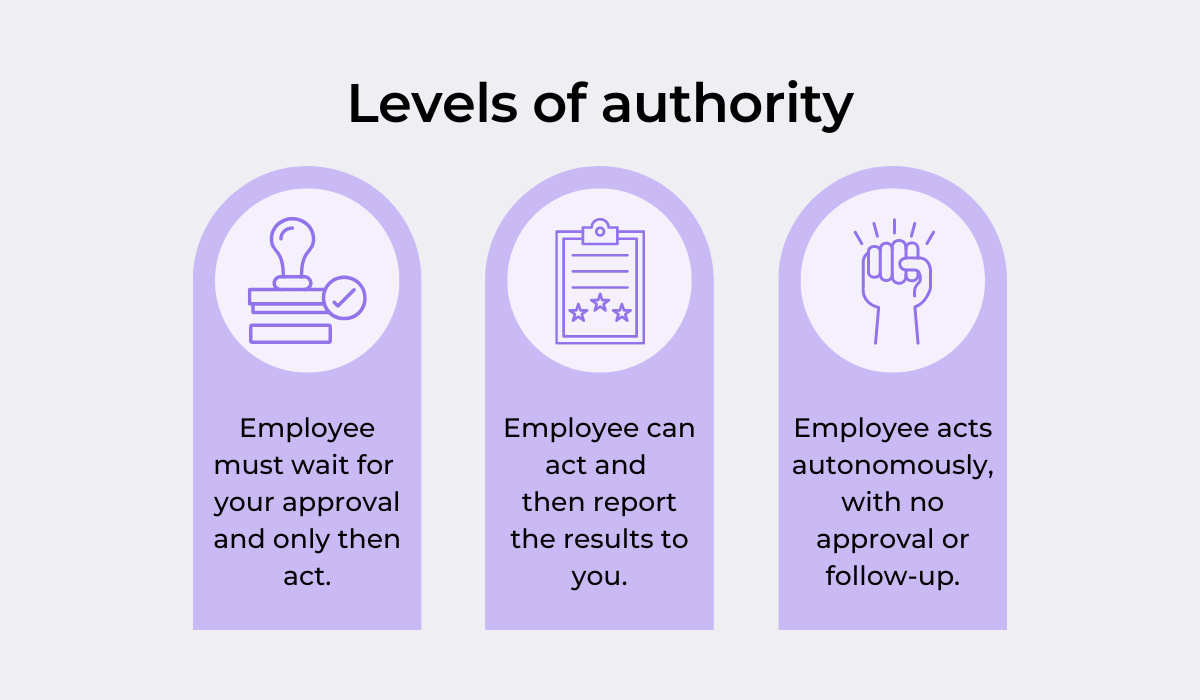
In the first system, your employees must obtain your approval upon completing a task and can’t move forward otherwise.
With the second example, developers can act independently but must then report the following events to you. From there, you can decide on the next steps.
The third model allows your developer complete autonomy. They can act however they see fit, without requiring your approval or consultation.
This level of authority should only be reserved for your most experienced employees.
If you decide on the second or third model, you’d do well to send the message that your team members are part of the decision-making process and that you value their input.
Here’s one way to indicate your trust in them:

By not sitting at the head of the table, you show that you’re part of the team, just like them, and want to hear their thoughts on the matter.
However, if you’re operating within the first model, where your explicit approval is required, consider sitting apart sometimes.
This placement clearly communicates that your endorsement is necessary. Subtle signs like these might seem insignificant, but they go a long way towards defining authority.
Set clear expectations
Besides defining your developers’ authority, you should also set clear expectations when delegating tasks. Your employees need to know precisely what is expected of them.
Imagine you assign someone to build a database model—that’s the entire task. There isn’t much information to assist them.
What is the database being used for? When does it have to be completed? What data sources will it utilize?
If you had answered the above questions immediately, your developers would have had a much easier time.
As such, try to always offer the following information:
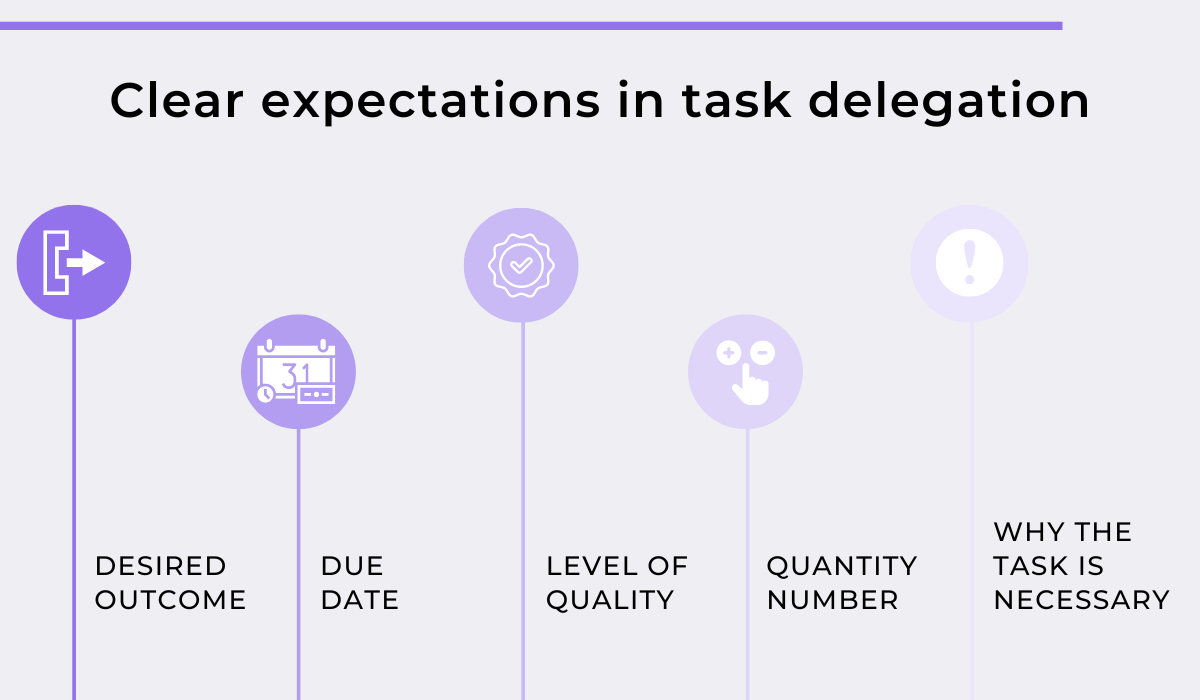
By communicating the above, developers are less likely to make mistakes and will probably be more productive.
Simply knowing the quality level is already helpful—do you expect a fully functioning feature or just a rough wireframe sketch?
The due date is also necessary, as developers can schedule accordingly and manage priorities.
However, perhaps the most necessary (yet often overlooked) component of clear expectations is explaining why the task is needed.
How does the assignment relate to your company’s goals and complement the long-term strategy?
This context is essential, as it helps identify the purpose and benefit of the task and indicates what your developers are ultimately working towards.
Julie Teigland also commented on this:

By emphasizing your company’s larger goals, you provide your developers with guidance, allowing them to understand how completing their tasks contributes to the organization.
That way, when in doubt, they can remind themselves of the larger context and work with that expectation in mind.
Provide the required resources
You could delegate tasks to a developer several times your senior, and they would still have difficulties executing it if they lacked the required resources.
As a team leader, it’s your responsibility to ensure your team members never find themselves equally lost.
In other words, you’ll have to equip your developers with all the information and tools needed to complete a task.
One easy way to accomplish this is to direct them towards all the relevant sources of knowledge, whether your company’s internal documentation or some external resources.
Here’s an example of how documentation can assist developers:

This Reddit testimony details a front-end developer’s attempts at working on the Flutter back-end.
They struggled with the assignment but ultimately solved the issue by studying the documentation.
Besides securing the documentation, it’s also a good idea to use visual aids when explaining tasks, as studies have shown that information is more easily digested when accompanied by images.
This is especially pertinent when delegating bug fixes, as attaching screenshots of the error is crucial.
An easy way to do so is to invest in a bug reporting tool such as Shake.
With this resource, just shake your phone, and a detailed bug report will be sent to the developers, complete with screenshots, screen recordings, steps to reproduce the error, the app version, and more.
Here’s an example:

This tool makes reporting bugs easy and provides your developers with all the information they need to eliminate bugs quickly and efficiently.
Without it, they’d have a much more difficult time debugging, proving the value of additional resources in tasks.
Allow for autonomy
The primary purpose of task delegation is to remove some of your workload so that you can focus your energy on critical tasks.
However, if you keep giving additional instructions after delegating and constantly double-check your employees’ progress, you haven’t freed up any time.
You mustn’t micromanage after delegating tasks, as you’ll essentially be doing your employees’ assignments along with your own. Instead, allow your developers autonomy.
By trusting your developers to complete the task independently, you’ll be able to concentrate on your workload, making for a much more efficient work process.
Jonathan Saeidian, the founder of Brenton Way, advises the same:
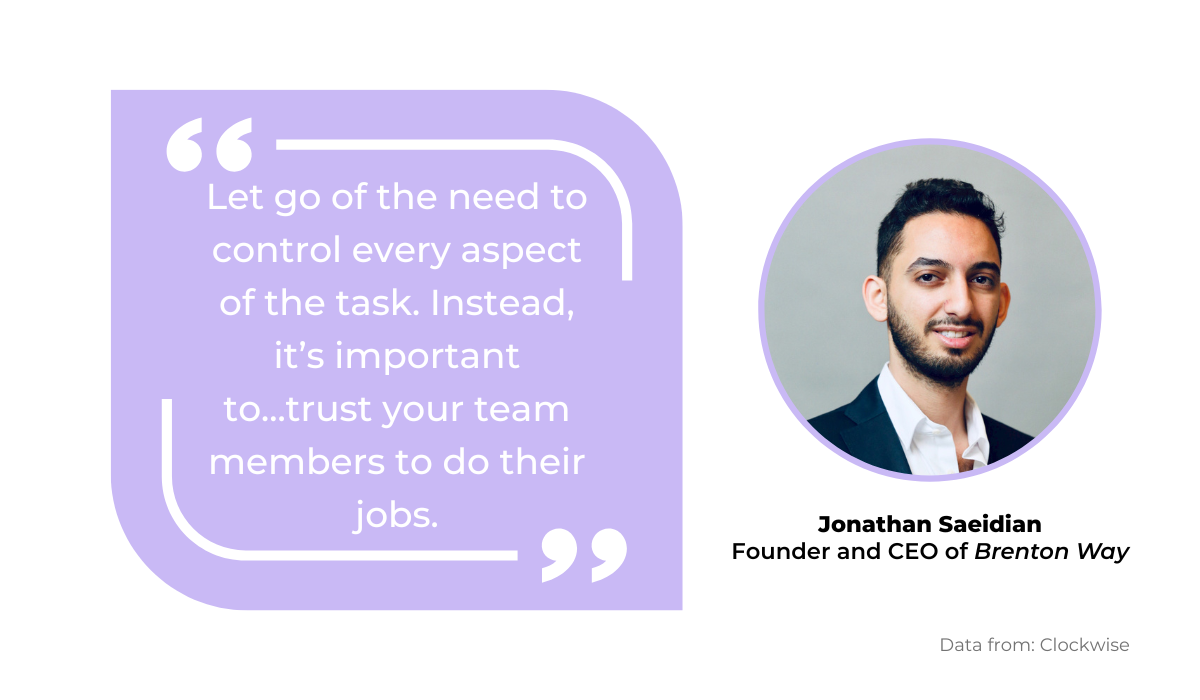
Your developers are likely skilled, competent individuals—you wouldn’t have hired them otherwise. Believe in their ability to do their job well, and avoid micromanagement.
Allowing your developers autonomy has an additional, hidden benefit—they will grow more confident in their skills and knowledge.
Grant your developers free reign over the assignments and emphasize they are wholly responsible for the success of that task—they will be exceedingly proud of themselves if they perform well.
Kay and Shipman, authors of The Confidence Code, summarized how to achieve confidence:
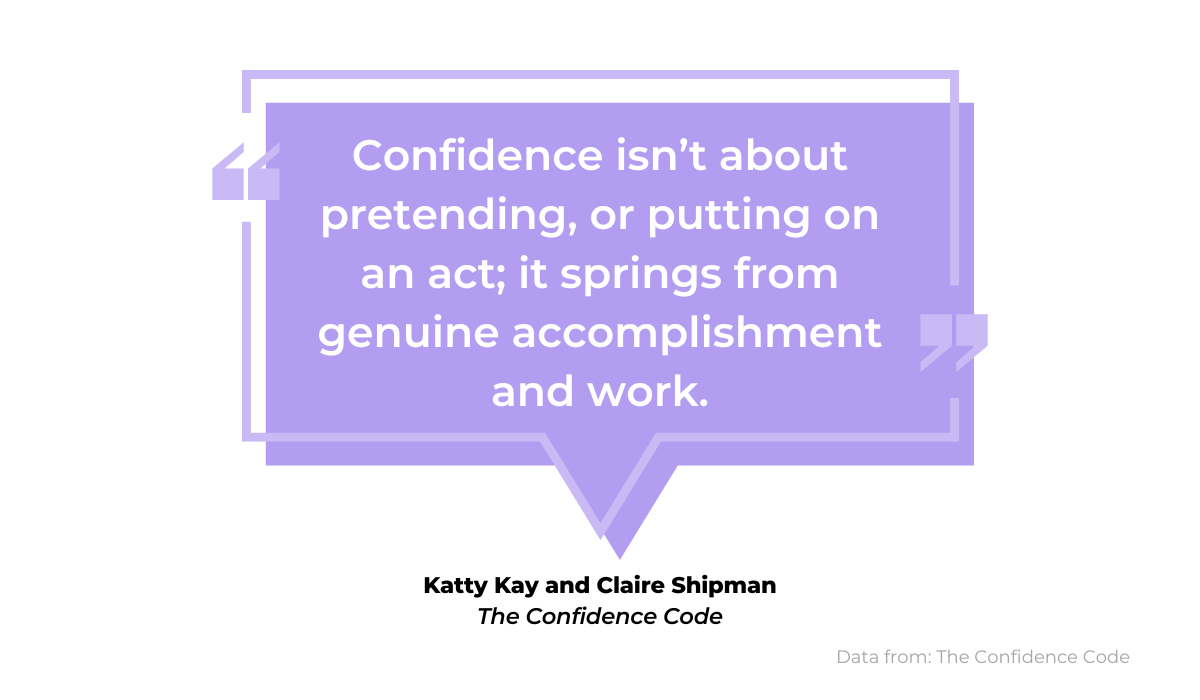
Put more succinctly, confidence cannot be faked and is only achieved through accomplishments.
If you hand-hold your developers every step of the way, they are unlikely to acquire this confidence, as they won’t be able to consider the victory truly theirs.
However, by allowing autonomy, your developers will more or less complete tasks independently, boosting their confidence.
Make yourself available
Even after you’ve successfully delegated the tasks and set your developers on their way, your job still isn’t done.
You still need to make yourself available to your employees throughout the assignment.
Your developers might get stuck, have questions, or encounter problems as they work—especially if they’re tackling a new task for the first time. In these situations, they’re going to need your guidance and assistance.
To that end, it’d be a good idea to implement the following advice:

To put it another way, establish a constant, specific communication channel your employees can use to reach out to you whenever they need help.
For example, ask your employees to contact you on Slack if they require your input, or set aside regular one-on-one meetings to review and guide your developer in their tasks.
With this system, your employees know they can always reach you one way or another and ask for advice,
Furthermore, by implementing standard communication practices, your team members are more likely to succeed in their tasks. Just take a look at these disheartening statistics:
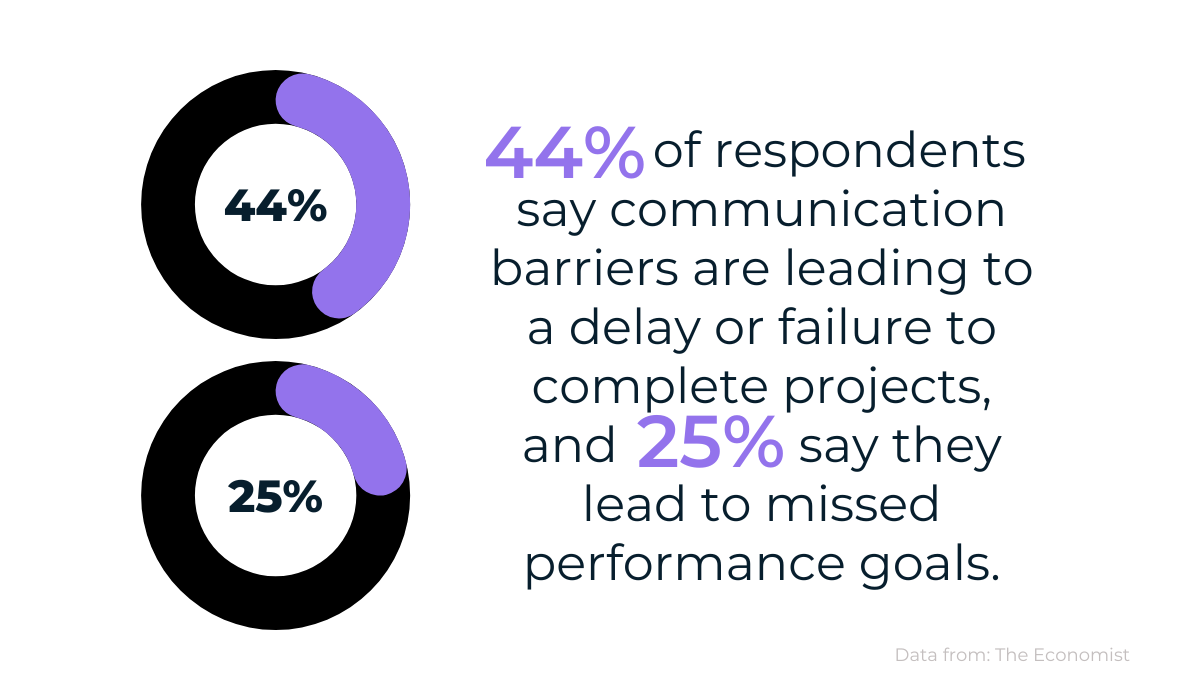
Without proper communication, there’s a risk your developers might have trouble tackling their assignments without assistance.
Such slow progress will inevitably slow down the entire project and might negatively impact their performance reviews.
To ensure it doesn’t come to that, make yourself available to your developers—the entire project will benefit from it.
Give regular feedback
Along with making yourself available, another post-delegation task is to give regular feedback.
If you withhold your feedback until after the assignment has been completed, your developer might have to re-do the task from scratch.
To avoid this, it’s much more effective to discuss their output with them at regular intervals.
That way, you can immediately catch errors and improvement areas, and your developer can refine their work as they progress.
Furthermore, the end result should be satisfactory, as you will have been providing constant guidance. Your employees won’t waste time by making large changes.
When it comes to the means of giving feedback, research shows that it’s best to avoid email:
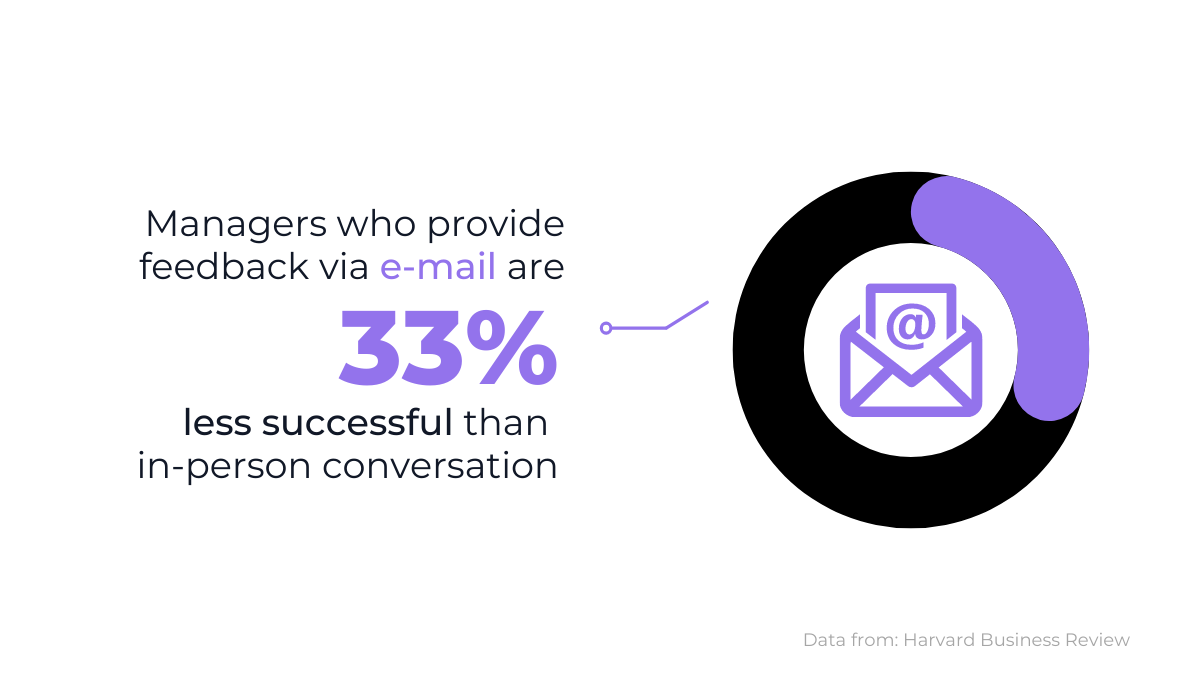
If you offer feedback via email, you lack the human element that many employees value.
As a result, the best medium for giving feedback is through in-person conversation, so always strive to discuss your employees’ performance face-to-face.
When delivering feedback in this way, always mention how much you appreciate your developer’s work.
Even if most of your ensuing comments are constructive criticism, it’s important to acknowledge the effort the employee is making.
In fact, research has shown that this type of recognition is a considerable motivation booster:
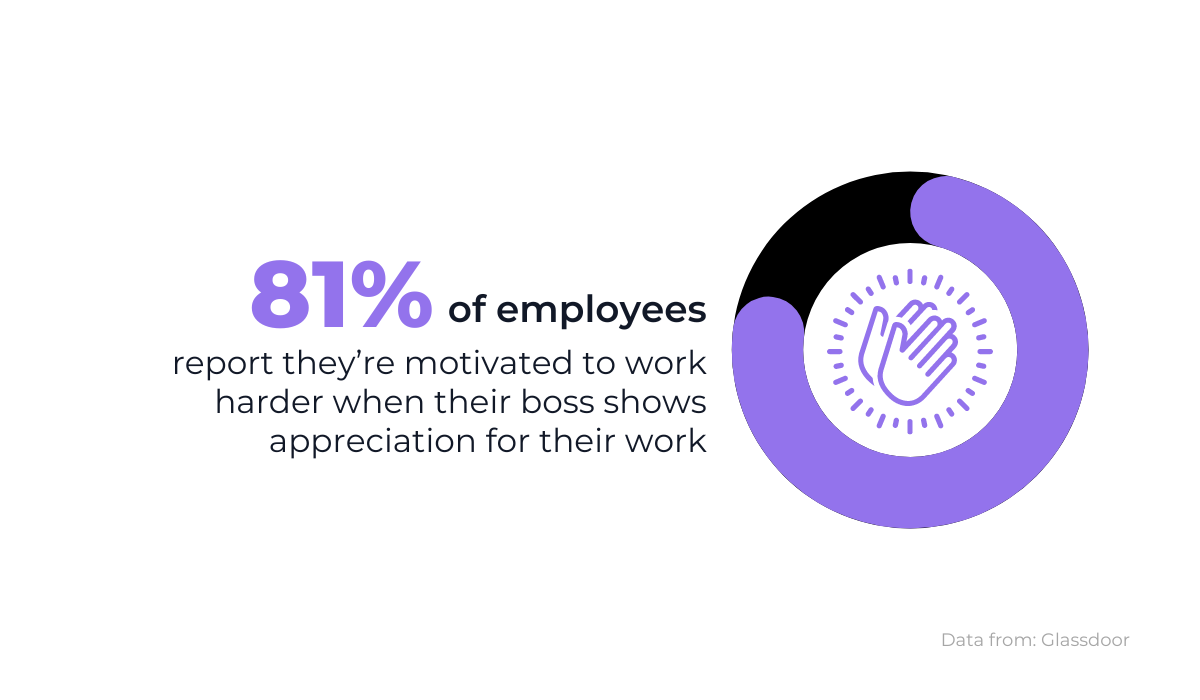
Even if it’s only a few words of praise or a simple sentence about how relieved you are to receive help, your developer will likely be motivated to continue with the task.
This benefit alone proves the value of regular feedback sessions after delegating assignments.
Conclusion
Team leads often have countless tasks, yet rarely the time to complete them, making effective task delegation an essential skill.
First, identify what tasks to delegate and then the right people to delegate to. Considering your developers’ career goals is a good starting point.
Furthermore, ensure to define your employees’ authority and provide all the required resources.
Autonomy is essential when developers begin a task, but you’ll also need to set clear expectations.
Finally, give regular feedback, and make sure you’re always available for your developers.
Follow these tips, and you’ll master task delegation in no time at all.




